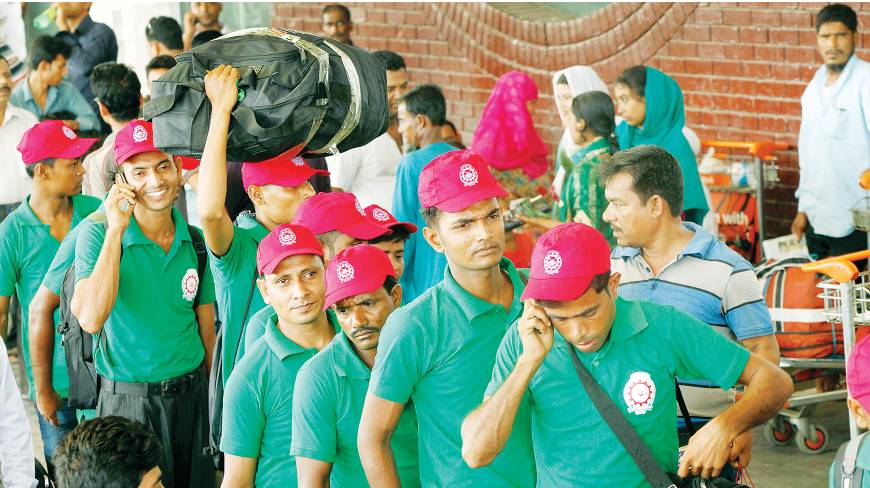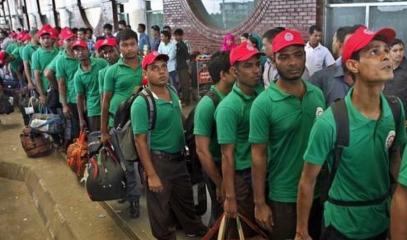Yunus government's biggest challenge: Youth unemployment (and migration):
To date there are 2.59 million people without employment in the country, with a particular incidence in the younger segments of the population. The figure of those who expatriate to complete their studies or better professional opportunities continues to grow. The local church's commitment to education, starting with technical institutes.
Dhaka (AsiaNews) - The world of work and the unemployment-related emergency, also certified by the numbers, are among the priorities facing the interim government led by 84-year-old laureate Muhammad Yunus, who took over from Sheikh Hasina who was exiled to India after weeks of protests, and deaths, among students.
According to the Labor Force Survey, published by the Bangladesh Bureau of Statistics (Bbs), as of today there are 2.59 million people without employment in the country, up from 2.47 million at the end of last year, and particularly critical in the younger segments of the population.
Hence the choice of many boys, and girls, to seek professional opportunities -- or pursue college careers -- abroad in the face of lack of employment prospects, poor quality of life and limited career opportunities.
Over the past decade, the number of students traveling abroad from the Asian country for higher education has more than doubled, reflecting a growing trend of brain drain that further exacerbates the domestic crisis.
According to a recently released UNESCO report, as many as 52,799 students left Bangladesh in 2023 to pursue careers on books at an institution abroad.
This is far higher than the 24,112 in 2013 and 16,609 in 2008, highlighting an increasing trend of young people seeking opportunities outside their home borders. And again, 49,151 students left Bangladesh in 2022, again up from 44,338 the previous year.
The UN body's report, titled “Global Flow of Tertiary-Level Students,” identifies the United States as the top destination, with 8,524 students accepted in the past year. Other popular destinations include the United Kingdom (6,586 students), Canada (5,835), Malaysia (5,714) and Germany (5,046). Australia, Japan, India, South Korea and Saudi Arabia have also attracted thousands of Bangladeshi students.
Desperate to escape a difficult job market, many risk their lives to migrate to Europe by crossing the Mediterranean. While some succeed, others risk death or imprisonment in foreign countries.
Despite these dangers, the desire to migrate remains strong. Bangladesh ranks sixth globally in terms of diaspora population and seventh in terms of expatriate income. The Middle East, primarily Saudi Arabia, the United Arab Emirates (UAE), Kuwait and Oman, has become the top destination.
Government statistics show that more than two million young people enter the labor market each year, but only 1.2/1.3 million manage to obtain employment within the country. Of these, 85 percent find jobs in the informal wage-based market, leaving only 300 thousand new jobs in more stable sectors.
This serious imbalance between supply and demand is fueling the continuing exodus of young people, who increasingly look across borders for a better future. In the current critical situation, Catholic Church in Bangladesh is actively contributing to the creation of job opportunities by focusing on technical education and vocational training in the appropriate institutes.
Caritas Bangladesh, the Brothers of the Holy Cross, and PIME priests run about 40 vocational institutes, providing young people with training opportunities.
Holy Cross Brother John Jogesh Karmaker, director of Bottomley Homes Orphanage and Technical School, recognizes the challenges young people face in finding decent work. This frustration drives many to seek risky and often dangerous opportunities abroad, particularly in Europe and the Middle East.
Many sell land or take on significant debt to finance migration, only to find themselves living in harsh conditions and earning derisory wages. He stresses the importance of prioritizing vocational education.
“There are not many students in our technical schools,” he tells AsiaNews, ”but those who receive training are easily able to find a job or start their own business.
Ironically, while many Bangladeshi youths seek jobs abroad, the country attracts many foreign workers, especially from India, Sri Lanka, and China, in key sectors such as garments and textiles.
More than 100,000 foreign workers are officially employed, although the real number may be far higher due to the abuse of tourist visas. This also points to the need for better labor market management and policies to create more domestic job opportunities for young people.
11/08/2017 20:05
21/08/2024 14:05
14/06/2017 09:03








.png)










